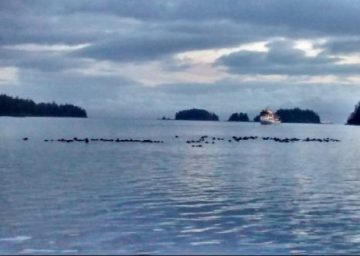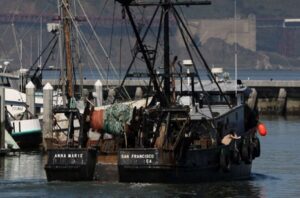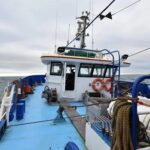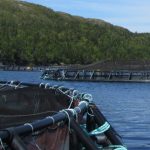Tag Archives: Phil Doherty
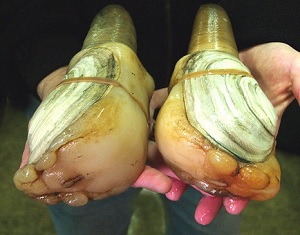
‘In shock’: Coronavirus sidelines Southeast Alaska dive fishermen
The coronavirus that emerged in late 2019 has infected more than 60,000 people, mostly in China. Though there haven’t been any confirmed cases in Alaska yet, some Alaskans, namely geoduck clam fishermen are feeling ripple effects from the epidemic.,, Though geoducks are native to the Western Hemisphere, Doherty said 95 percent of the catch gets sent across the Pacific. >click to read< 08:24
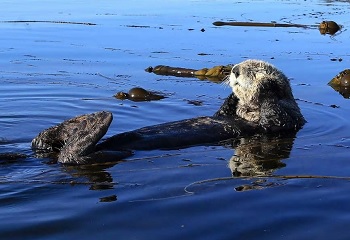
As the marine mammal takes a bite out of the fishing industry, A modest proposal for hunting sea otters
Phil Doherty doesn’t think sea otters are cute. Sure, he can see why tourists might get a kick out of watching the fuzzy critters reclining in waves with clams on their bellies, fixing to chow down. But to Doherty, co-director of the Southeast Alaska Regional Dive Fisheries Association and the commercial fisherman he represents, those cuddly otters are eating their bottom line. >click to read< 15:07

Solutions sought to ease conflicts over Southeast Alaska’s rising sea otter populations
A hundred years ago, the fur trade wiped out sea otters in Southeast Alaska. They were reintroduced in the 1960s with 412 animals brought from Amchitka Island and Prince William Sound. Since then, they’ve done really well. The last official estimate in 2012 shows that there are more than 25,000 of them. But their success has changed their environment as they’re a keystone species. “Many of those effects are really disruptive to the existing, you know, commercial activities like shell fisheries that have developed.” >click to read< 07:57
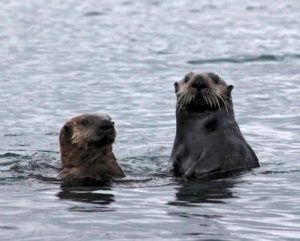
Alaska Dive Fishermen Plead for Relief from Sea Otters
Phil Doherty, head of the Southeast Alaska Regional Dive Fisheries Association, is working to save the livelihood of 200 southeast Alaska fishermen and a $10 million industry but faces an uphill struggle against an opponent that looks like a cuddly plush toy. Fishermen have watched their harvest shrink as sea otters spread and colonize, Doherty said. Divers once annually harvested 6 million pounds (2.7 million kilograms) of red sea urchins. The recent quota has been less than 1 million pounds (454,000 kilograms). “We’ve seen a multimillion-dollar fishery in sea urchins pretty much go away,” he said. >click to read<12:46






